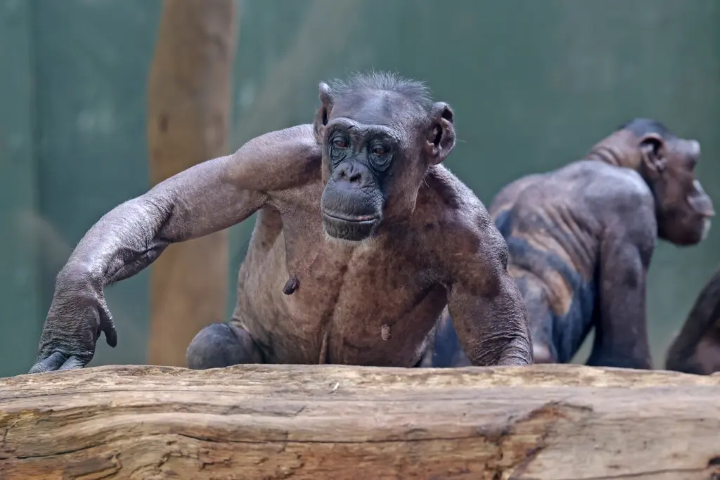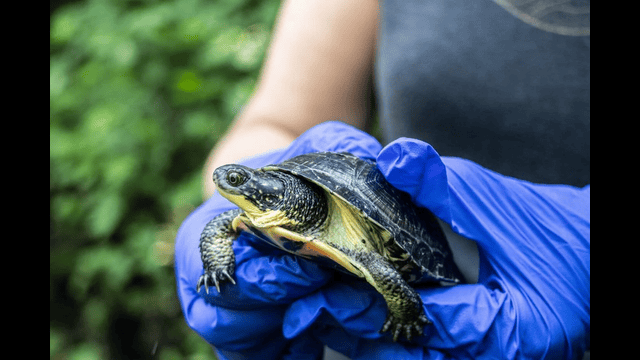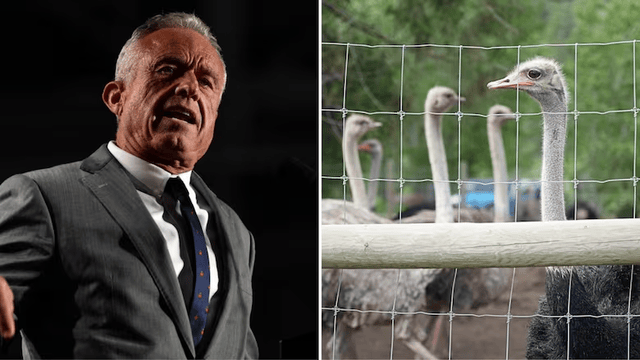
Chimpanzees at Magdeburg Zoo in Germany have inexplicably lost their hair, sparking concerns over their well-being and captivity conditions. (Peter Gercke / BILD Fotoservice)
A peculiar occurrence has left zookeepers at Magdeburg Zoo in Germany scratching their heads as a group of chimpanzees has mysteriously lost their hair. Initially puzzled by this phenomenon, concerns have now arisen that the chimpanzees might be engaging in aggressive behavior, resulting in the loss of their fur.
These chimpanzees, known for their robust physicality, have become a curious sight for zoo visitors due to their bald patches. A sign placed near their enclosure attributes this peculiar appearance to "over-grooming."
In a recent statement by People for the Ethical Treatment of Animals (PETA), it was revealed that the chimpanzees exhibit noticeable bald spots on various parts of their bodies, including their heads, chests, and shoulders, with some nearly devoid of hair.
According to animal rights groups, the enclosure housing these chimpanzees is deemed inadequate, suggesting that the observed behavior is indicative of distress and suffering among the animals. Furthermore, instances of unusual behavior such as the consumption of excrement have been reported.
However, Magdeburg Zoo's veterinarian, Felix Huseman, contested PETA's claims, asserting that the chimpanzees are in good health overall.
This isn't the first time these chimpanzees have made headlines. In 2019, they managed to escape from their spacious outdoor enclosure, prompting authorities to confine them to a smaller concrete pen temporarily while a new outdoor enclosure, costing $2 million, is under construction.
Expected to open later this year, the new enclosure aims to provide a more suitable environment for the chimpanzees. Despite this effort, PETA remains steadfast in its opposition to keeping great apes in captivity at Magdeburg Zoo. Although a previous criminal complaint against the zoo for relocating the chimpanzees was dismissed in 2021, PETA continues to advocate for their complete removal from captivity.
In light of these developments, PETA urges both policymakers and the zoo management to reconsider the captivity of great apes, emphasizing the importance of prioritizing the well-being of these animals regardless of improvements in their living conditions.















